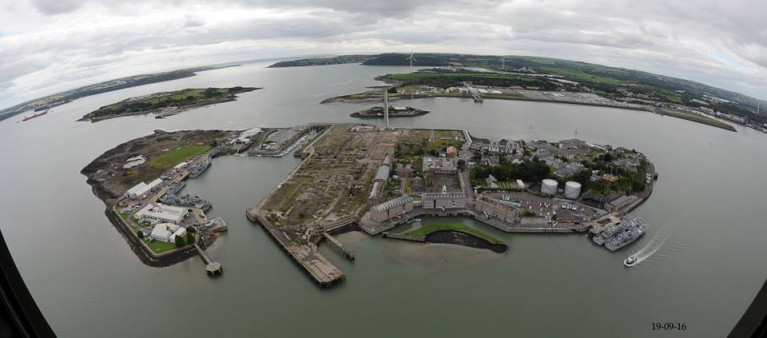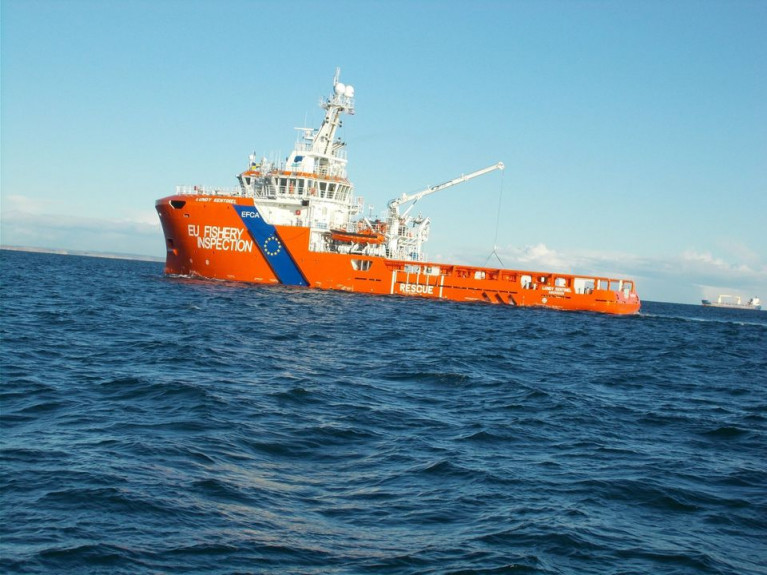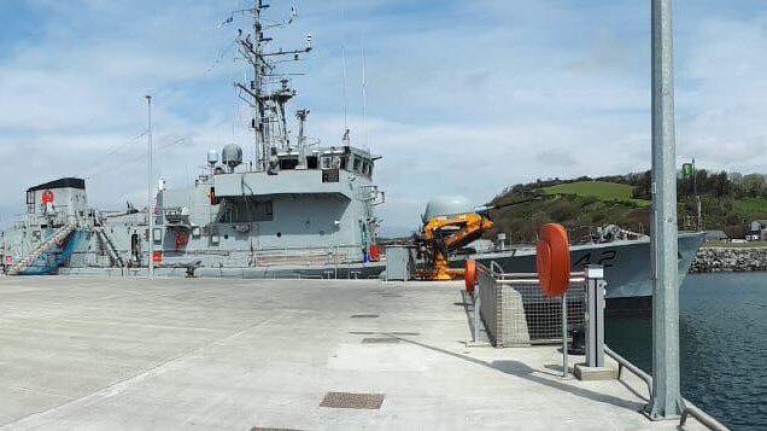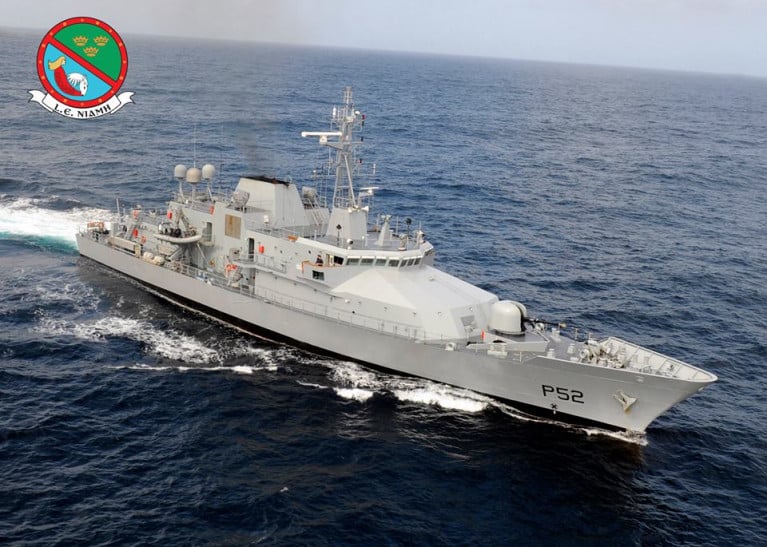Displaying items by tag: Crew Crisis
Just six young Naval Service recruits passed out of training in what's believed to be the smallest class in modern times encountered by the navy, which is already dogged by personnel shortages.
Normally, the Naval Service would get anything between 25 and 40 in a recruit class and needs to ratchet up recruitment significantly as it is already more than 200 personnel short of the minimum number it requires.
The Irish Examiner understands that initially, 15 people enlisted in this particular recruit class. They were primarily trained at the army's Collins' Barracks in Cork City because there is more space there than the Naval Service headquarters on Haulbowline Island and extra space was required due to Covid-19 restrictions.
Nine dropped out during training, leaving just six to pass out after completing a 22-week course.
Click here for more on the chronic shortage of naval crew.
The current dire condition of the Naval Service led Ireland to rely on a European Union (EU) ship to help patrol its fishing zone for the first time this year.
According to the Irish Times, the Irish Sea-Fisheries Protection Authority (SFCA) requested and received the support of the European Fisheries Control Agency (EFCA) in patrolling Irish waters on four occasions between January and March in 2021.
This was considered necessary because “the Naval Service could not commit to increase its patrol days at sea under a joint-EU initiative co-ordinated at EU level by EFCA.”
It was the first time Ireland had to rely on the EFCA’s vessel (Afloat can reveal as the Lundy Sentinel).
The revelation was contained in a blunt assessment from the Department of Agriculture, Food and Marine to the Commission on the Defence Forces which is examining the future role and capabilities of the Irish military.
Fishery protection is the core role of the Naval Service, which has been hit particularly hard by the manpower crisis impacting the entire Defence Forces.
Last year there was a 25 per cent decrease in the number of fishery patrols carried out by the Naval Service compared to 2019.
For more on this notable first fishery patrol duty performed by the EFCA in Irish waters, click here.
Use of financial sweeteners aimed at stemming rapidly declining numbers of the Naval Service have failed, making it increasingly difficult to carry out key roles such as sea fishery protection and search-and-rescue operations.
In a communique sent by senior Naval Service officers to a member of the Defence Forces General Staff, they say the 'concerning and continual fall in (personnel) numbers' in the service, is 'hampering best efforts to provide the expected level of service to key stakeholders, and indeed the State'.
The 'restricted' communication, seen by the Irish Examiner, has further fuelled calls for an urgent response from the Government to tackle the deepening retention crisis in the Naval Service, which is currently operating without four ships.
LÉ Eithne and LÉ Orla were taken off operations in June 2019 due to crew shortages. LÉ Ciara is currently 'tied up' because she's so small there could be a high risk of Covid-19 transmission among her crew. It's not known when they will be fully vaccinated.
LÉ Roisin is coming out of a mid-life refit and when she does LÉ Niamh will go into dock for a similar overhaul.
More from the newspaper here.
Patrol by Naval Service Cancelled Due to Crew Shortage
Naval Service manpower crisis continues, writes Irish Examiner, with ships being delayed going on patrol because they are short of a specialist crew member.
LÉ Niamh was to go on patrol last Monday but was forced to cancel sailing when a communications specialist earmarked for the four-week patrol was unable to join the crew due to illness.
The Irish Examiner understands at least three such incidents have occurred in recent months and that it is becoming a growing problem associated with critical shortages of communications specialists, medics, marine engineers, engine-room fitters, and electronics and electrical technicians.
Nearly 15 months ago, a decision was made to take two ships out of operations and to disperse their crews around the rest of the fleet to ensure the remaining ships were adequately manned.
However, the continued exodus of personnel has meant some of the remaining operational ships are struggling to find the necessary skill-sets to go to sea.
For more on this crew crisis click here.



























































